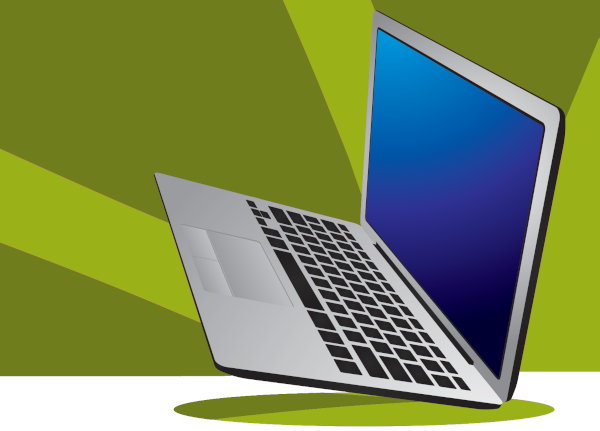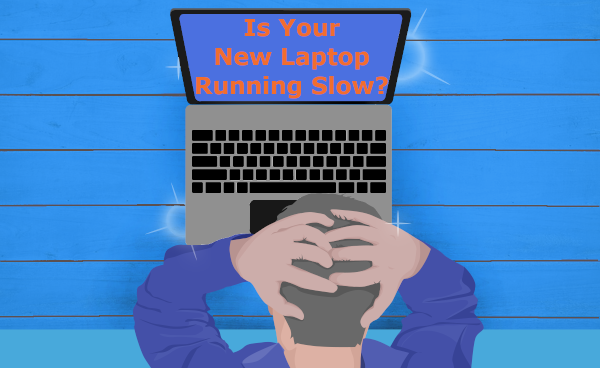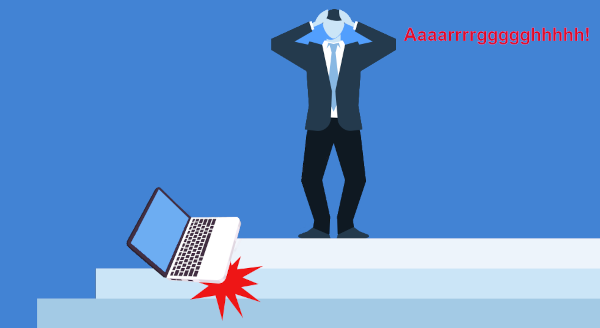Few things invoke panic like a missing laptop, smartphone or tablet. People rely on these devices and they can also contain files, personal financials, apps, passwords, pictures, videos and much more. Continue reading
Tag Archives: notebook
Help, I dropped my laptop! – What now?
Dropping your laptop is never a good thing but it does not always lead to serious damage as it will depend on the following factors:
- how hard and far it fell;
- whether it was running at the time of the fall;
- what kind of surface it fell onto;
- the type and size of the laptop;
- whether you have a mechanical hard drive or a solid-state drive;
5 Tips to Protect Your Laptop from Damage

A laptop can hold your entire business life and in most cases, it is essential for your job. Thus you need to keep it in great shape and not physically damage it. Here are some tips on how to protect your laptop. Continue reading
Why is My Brand New Laptop So Slow?
 Your old computer is beginning to slow down, so you head out and purchase a shiny new laptop. As it is brand new you think that everything will be faster and easier. Only, from the first day, the new laptop is lagging and you wonder why it is running so slow? Continue reading
Your old computer is beginning to slow down, so you head out and purchase a shiny new laptop. As it is brand new you think that everything will be faster and easier. Only, from the first day, the new laptop is lagging and you wonder why it is running so slow? Continue reading
Is Your Laptop Running Loud and Hot?
 Laptop computers commonly heat up in normal operation. Electronic components, including large capacity batteries, become warm in use but your laptop should never become too hot to handle.
Laptop computers commonly heat up in normal operation. Electronic components, including large capacity batteries, become warm in use but your laptop should never become too hot to handle.
When a laptop turns hot to the touch or starts to sound like a jet engine, it’s likely something is wrong.
Modern laptops use nearly silent fans to cool components and keep the system safe to use. For the majority of users the sound the computer makes is the best tool you have to diagnose its running condition. Excessive heat causes the fans to work harder and faster to help cool the system down. This jet engine sound is one of the first clues you have to indicate all may not be well.
Why So Hot
Due to their compact size and portability, laptop computers are particularly prone to overheating. Their tiny size means electronic parts are closer together and there is less room for cooling vents.
Most laptops have small fans that suck in cool air, passing it over metal fins to exchange heat from the system. The resulting hot air exhaust is expelled through vents back into the room. This helps prevent heat building up inside the machine. The constant air cycle is designed to keep the laptop running cool no matter the workload placed on it.
The process though, can be disrupted by any number of factors during operation. As well as cool air, computer fans also suck in dust, stray hairs and even cigarette smoke. Smoke in particular contains thick tar which coats the fins, fan blades, and internal components.
This foreign debris inside the machine prevents components from working at their best. Tar, dust and hair slows down the internal fan and coats the heat generating components and cooling fins. This coating prevents air exchange and keeps components warm as if they were under a blanket.
Causes of Overheating
Sometimes the way a laptop is used can cause it to overheat. Resting a laptop on thick carpets, blankets, or soft furnishings can block vents, preventing the fans from sucking cold air in or blowing the hot air out.
Leaving the machine running on carpet or furnishings, particularly for extended periods of time causes overheating issues and introduces extra dust into the components too.
The best place for a laptop is on a hard surface such as a desk, table or lap tray. This allows air to access the vents and helps prevent dust and hairs getting inside the machine.
Overheating Result
As the computer starts running hotter, the fan will attempt to compensate by running faster and more often. This results in the “jet engine” noise many users report when their computer is struggling to keep up.
Once dust, hair or tar has found its way into the machine it is notoriously difficult to clean out. The only way to properly clean the system is to disassemble the unit and clean out its components.
Much like a car engine, computer components have a designed temperature range in which they can safely and reliably operate. Extended periods of running above the temperature they are designed for causes damage, sudden failures and drastically reduces the lifespan of the computer.
Unlikely Cause
Often random blue screen computer crashes can be traced back to components that have been overheating inside the computer. As heat builds up, vulnerable components start to fail or behave strangely and can cause a range of issues.
When the systems has cooled down and restarted the issue is seemingly resolved. Back in operation, the computer heats up once more and subsequently crashes again. These irregular crashes are highly inconvenient and can cause data loss.
However, these symptoms are minor compared to a completely dead laptop. For some users, the first sign that the machine is too hot is when the motherboard is burnt out or their data storage has been irreparably lost.
If your laptop is running hot to the touch or has started to make loud sounds, bring it to us for a thorough clean out. You can also call us at 08 8326 4364 or
su*****@dp*********.au
.
5 Ways to Make Your Laptop Last Longer
 Due to their portable nature laptops usually receive rough treatment but are one of the most fragile pieces of tech you’ll ever buy. Here are five easy tips to help extend the life of your laptop.
Due to their portable nature laptops usually receive rough treatment but are one of the most fragile pieces of tech you’ll ever buy. Here are five easy tips to help extend the life of your laptop.
- Avoid sharp movements during use:
While some new laptops have an SSD (with no moving parts) for storing data, many laptops still have a mechanical drive. The drive has a head and a constantly spinning data storage disk. The head hovers microns over the surface of the spinning disk and one knock can cause them to collide. Just like a deep scratch on a DVD the data on that section will be corrupted and lost or even worse all the data on your drive can become unreadable. We also see a lot of people putting their computer into sleep mode or not even powering them off before moving the device. Always make sure you power down or put into hibernate the laptop before moving it or packing it away. - Keep it cool:
Your laptop has a few ways of telling you when it’s too hot – the fan, auto-shut off and the heat of the case. Many component in your laptop are generating heat and the harder it’s working, the more heat it generates. The fan runs to blow that heat out the vents and keep the components cool enough to continue operating. Because there is no clear temperature indicator, your fan volume is the best guide to monitoring laptop heat. While the laptop is working hard (and getting hot), the fan will spin faster and louder – it is not uncommon for it to sound like a hair dryer. Help it out by keeping your fan vent clear of books, blankets, and other blockages. A regular internal clean out (performed by a professional) is also a must to help keep the laptop innards clear of dust. - Respect the cords:
Inside those power cords are a bunch of delicate wires begging you to be gentle with them. You would think they should be able to take a beating, get bent, twisted and run over with chair wheels, but unfortunately they are not. Keep cords clear of sharp or flat-edged items and when wrapping for transport try to remember how it came out of the box. When moving the laptop wrap the cord gently around itself or the power adapter and secure with Velcro or similar. - Carry it in padded style:
A laptop will endure many bumps and bangs as the bag is moved around, even with careful use. So look for a bag that not only fits your laptop but is also well padded. Ideally your bag will have front, back, bottom, top and side padding as well as a waterproof outer. If backpacks aren’t your style, look for padded or hard-shelled sleeves. - Regularly back it up:
Laptops provide fantastic mobility but are quite fragile. While a regular backup won’t make your laptop components last longer, it will make any issue you encounter easier to deal with as you won’t loose all your precious data. Consider a cloud based or off-site backup for additional protection, so no matter what happens with your laptop you still have all your important files.
Call us at 08 8326 4364 to give your laptop a life-extending service.


